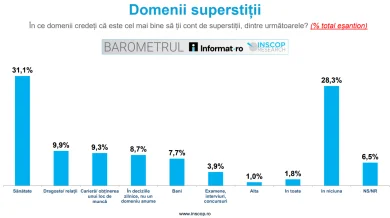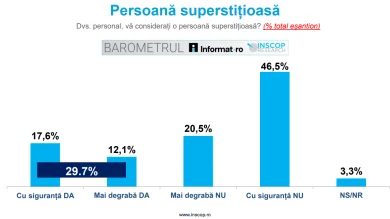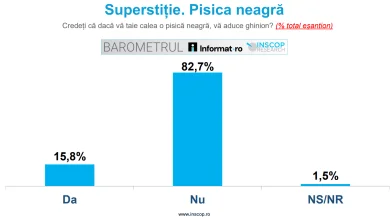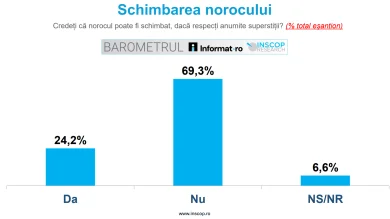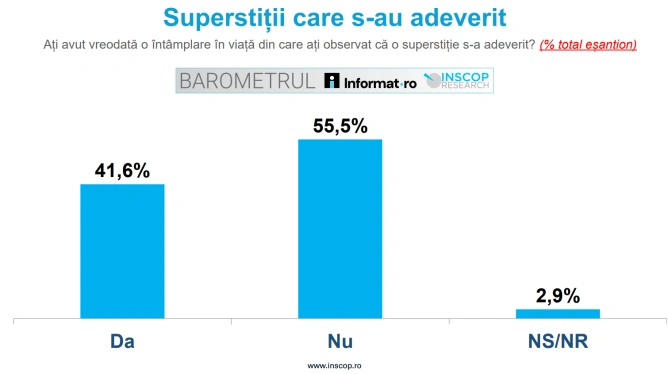
BAROMETER Informat.ro – INSCOP Research “Romania between Magic and Esotericism” was conducted by INSCOP Research on behalf of the news platform Informat.ro in partnership with the think-tank Strategic Thinking Group.
Methodology: Data was collected between October 6-10, 2025. Research method: interview via questionnaire. Data was collected using the CATI method (telephone interviews), with a simple stratified sample volume of 1100 people, representative of significant socio-demographic categories (gender, age, occupation) for the non-institutionalized population of Romania, aged 18 and over. The maximum allowable error of the data is ± 2.95%, at a confidence level of 95%.
The graphical presentation of the data is available here: BAROMETER Informat.ro – INSCOP Research – “Romania between Magic and Esotericism”
The entire video presentation can be found by accessing this link.
Validation of superstitions
On the other hand, 41.6% of respondents say they have had an experience in life where they observed that a superstition came true, while 55.5% say they have not. 2.9% do not know or do not respond.
They have had an experience in life where they observed that a superstition came true especially: PSD voters, young people under 30, and those between 45 and 59 years old, people with primary education, residents of Bucharest. They have not had such an experience in particular: USR voters, people over 60 years old.
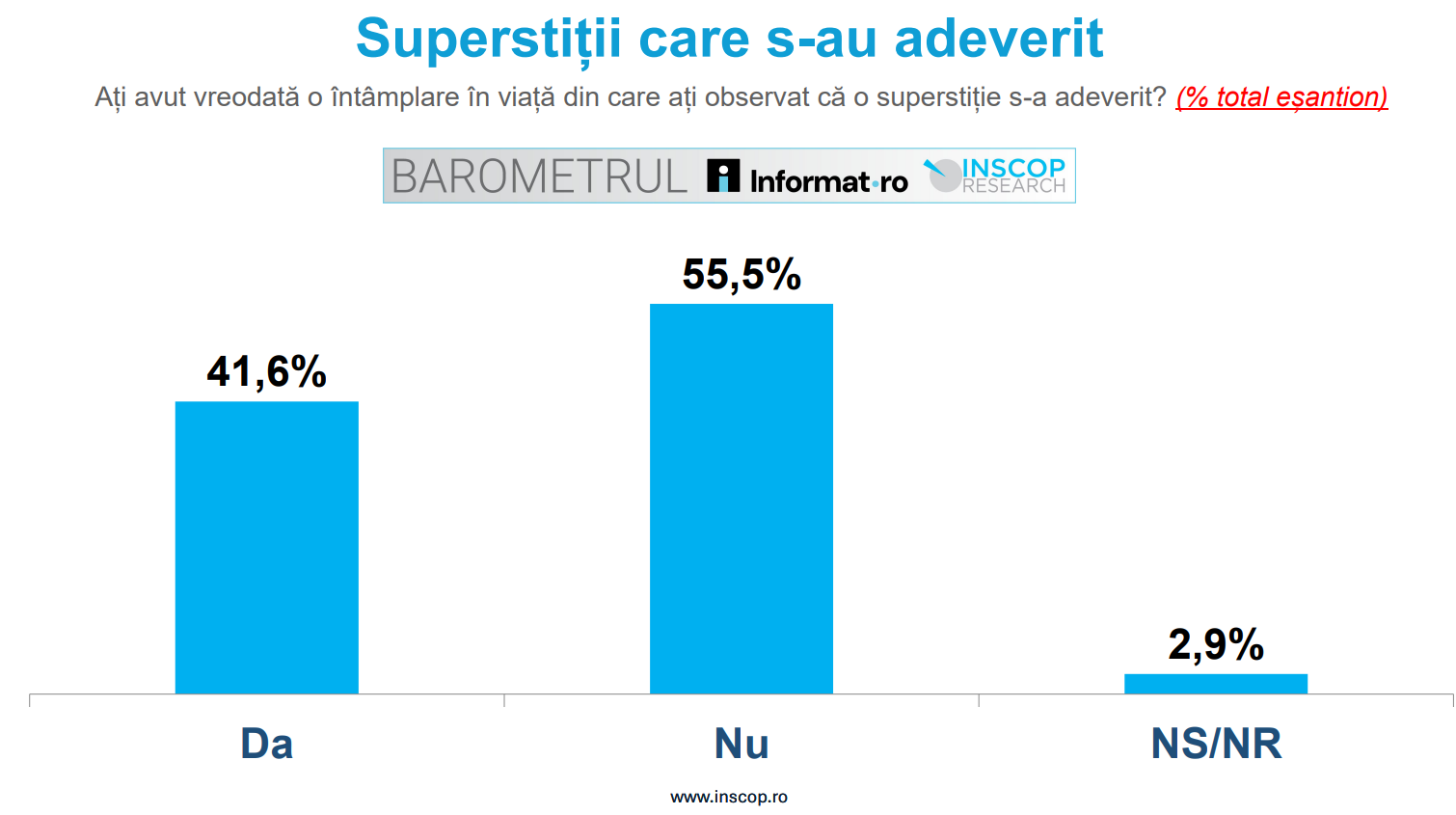
Graph inscop.ro
Superstitious people
17.6% of survey participants consider themselves to be superstitious. 12.1% say they are rather yes, 20.5% rather no, while 46.5% definitely do not consider themselves superstitious. The proportion of non-responses is 3.3%.
Superstitious people are especially: PSD and AUR voters, men, people with primary education, residents of rural areas and small urban areas. Those who do not consider themselves superstitious in particular are: USR voters, women, those with higher education.
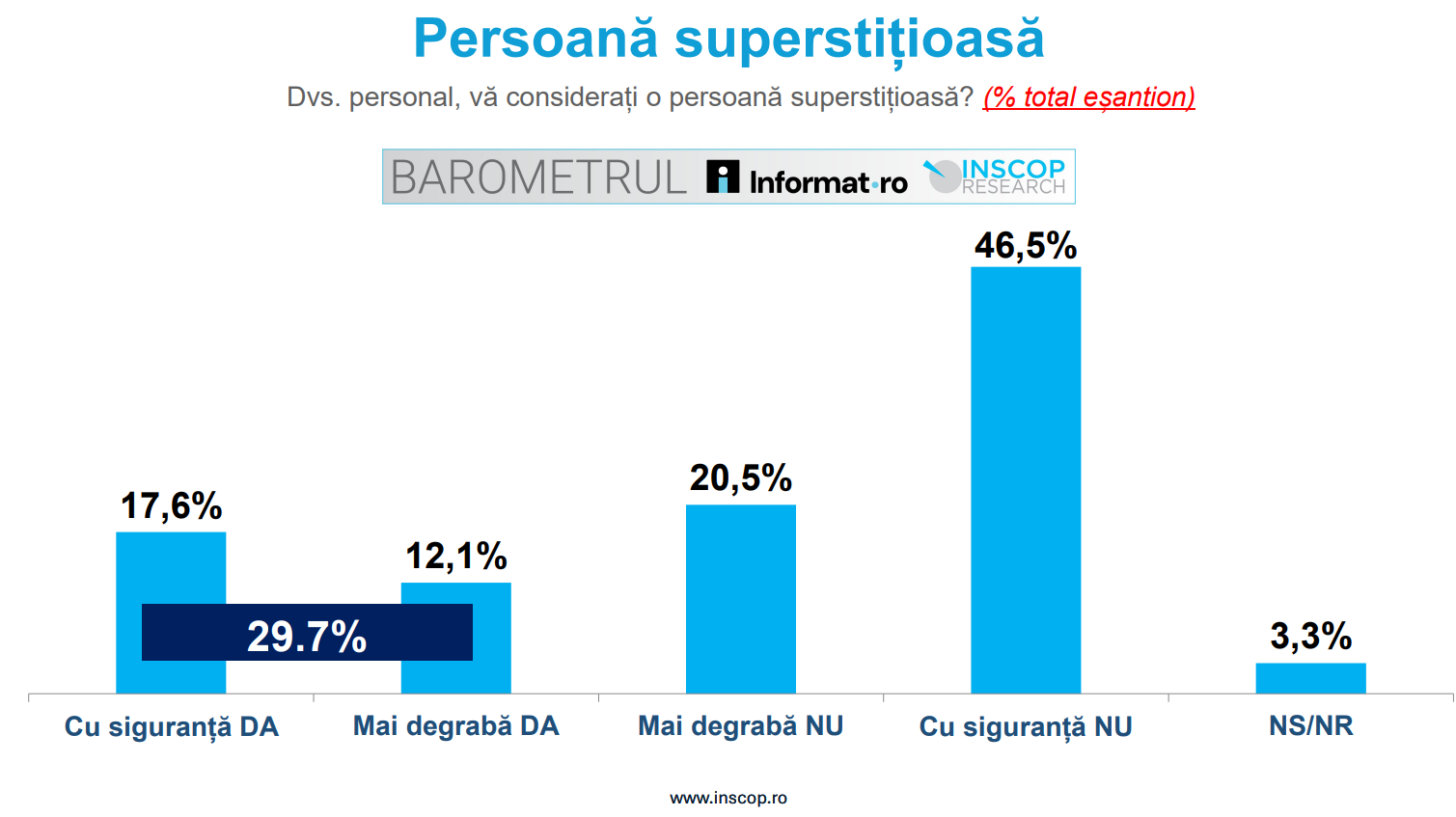
Graph inscop.ro
Domains of superstition
31.1% of Romanians believe that it is best to take superstitions into account in health, 9.9% in love/relationships, 9.3% in career/getting a job, 8.7% in daily decisions, not a specific domain, 7.7% in money, and 3.9% in exams, interviews, competitions. 6.5% do not know or do not respond.
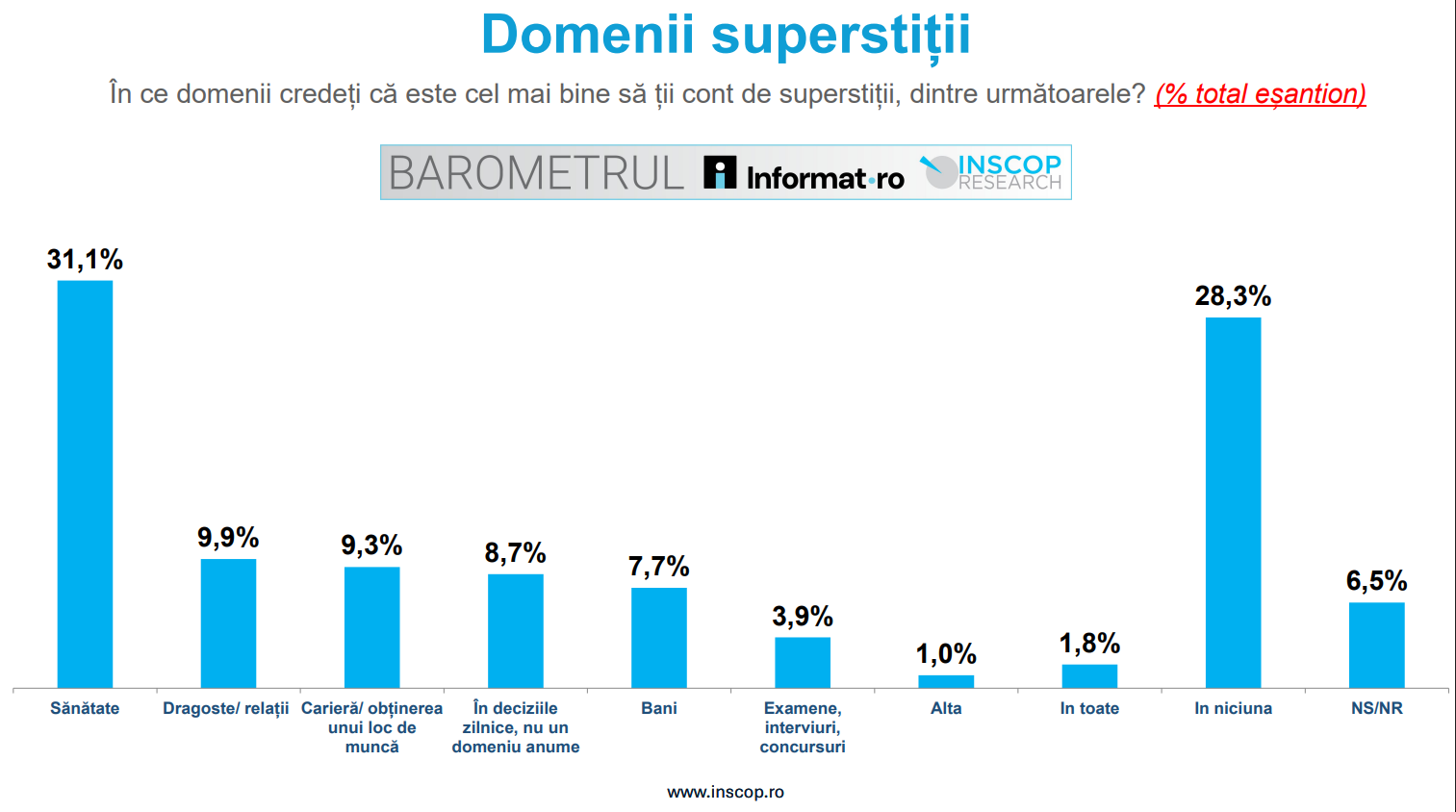
Graph inscop.ro
PSD and AUR voters, people over 45 years old, those with primary education, and residents of rural areas consider in a higher proportion than the rest of the population that one should take superstitions into account in health. They believe that it is best to take superstitions into account in love/relationships especially: PNL and PSD voters, young people under 30.
They believe that it is best to take superstitions into account in career/getting a job especially: PNL and AUR voters, people with primary education, state employees. Young people under 30 and residents of large urban areas consider in a higher proportion than the rest of the population that it is best to take superstitions into account in daily decisions, not a specific domain. In particular, PSD voters, young people under 30, and state employees believe that one should take superstitions into account when it comes to money. They believe that it is best to take superstitions into account in exams, interviews, competitions especially: people with higher education, residents of Bucharest.
